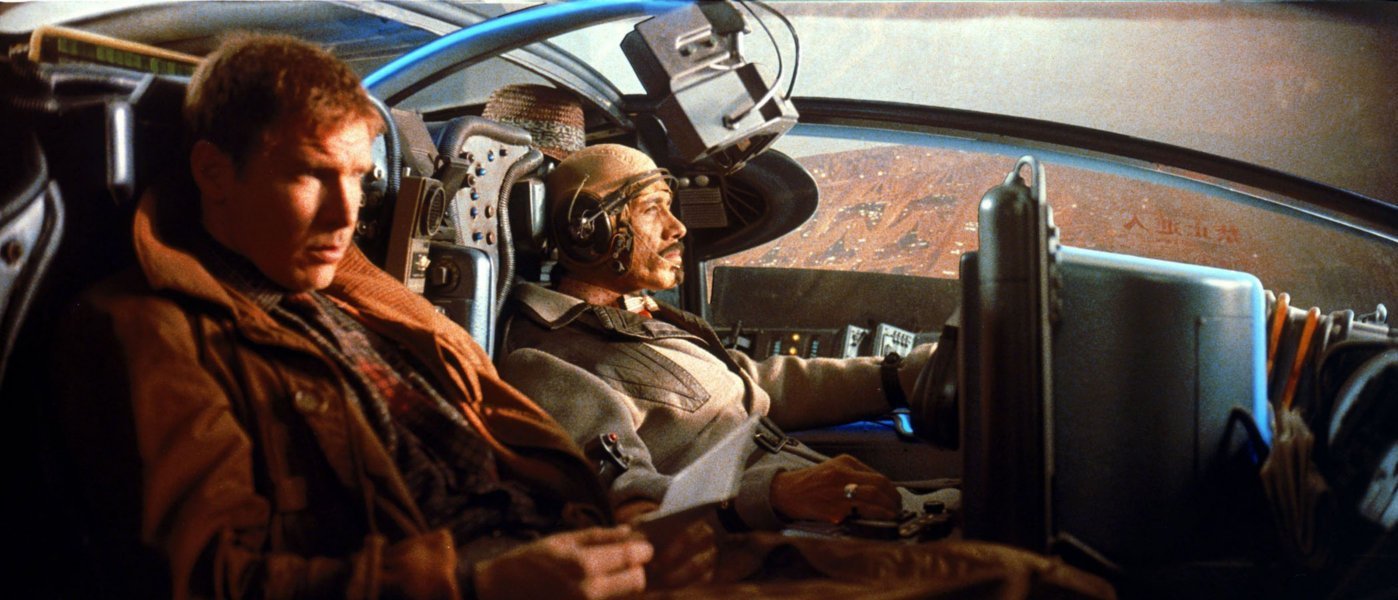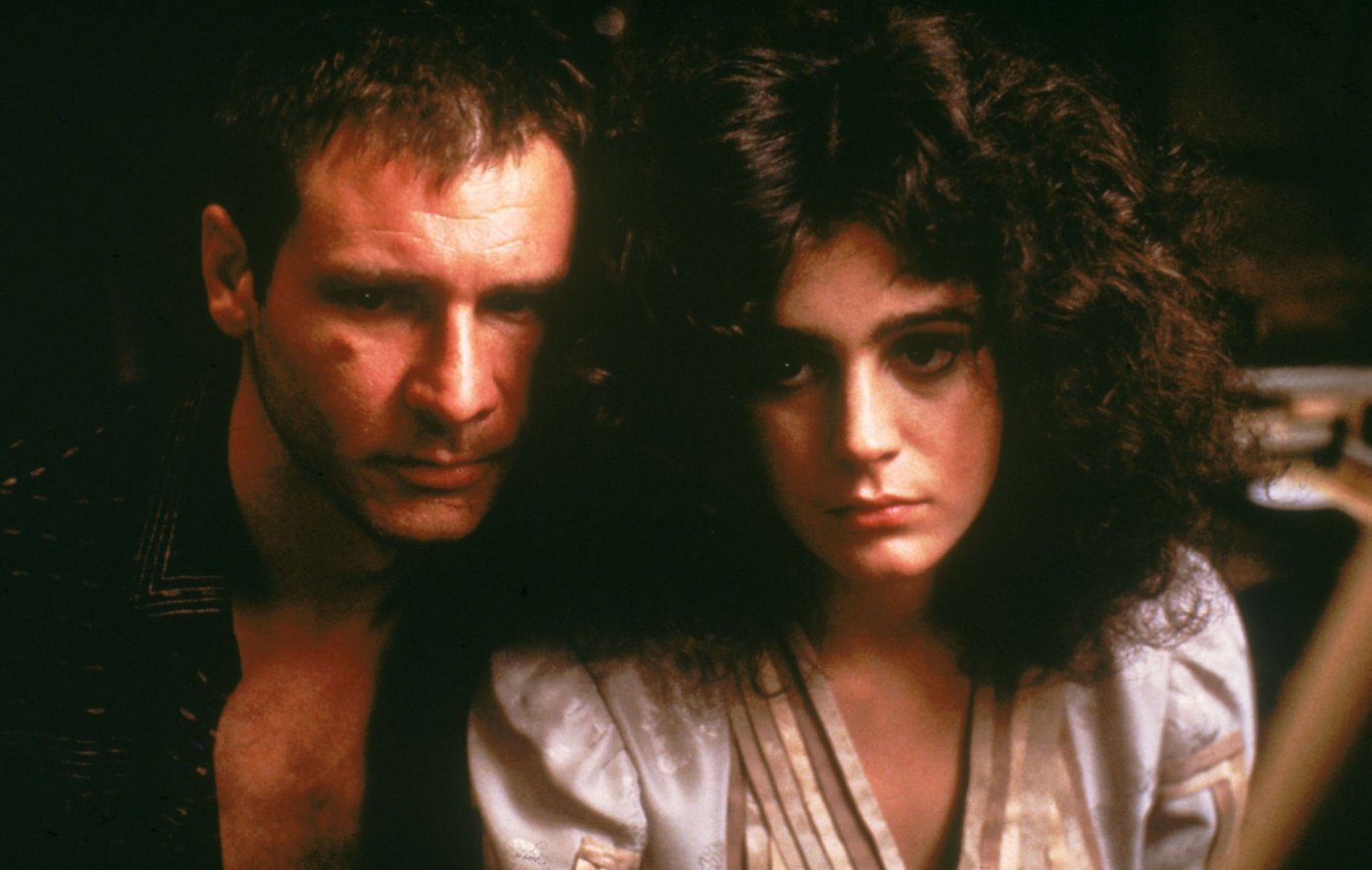USA | 1982 | Directed by Ridley Scott
Logline: In Los Angeles, 2019, a cynical and weary detective is coerced into tracking down several dangerous rogue androids, but finds himself confused and dehumanised in the process.
REPLICANT\rep’-li-cant\n. See also ROBOT (antique): ANDROID (obsolete): NEXUS (generic): Synthetic human, with paraphysical capabilities, having skin/flesh culture. Also: Rep, skin job (slang): Off-world use: Combat, high risk industrial deepspace probe. On-world use prohibited. Specifications and quantities ― information classified.
- New American Dictionary © 2016
It’s the flaws in a polished movie that elevate it to the level of rough diamond. Blade Runner is a cosmic gem ground at street level in a wet and filthy social apocalypse of technological ingenuity amidst a wild moral wilderness. Based on Philip K. Dick’s 1968 novella Do Androids Dream of Electric Sheep, it is widely regarded as one of the most influential sf movies ever made. It also happens to be my very favourite film (although Fellini’s 8½ occasionally comes a-knocking).
Ridley Scott had already made a brilliant and seminal sf movie, Alien, but he jumped back on board the future-noir wagon and delivered another grim and visceral piece of pure and astounding cinema. Keeping the weathered look of Alien, but expanding on his “retro-fitting” concept, Scott had the production design and art department go to town on an existing Hollywood set of downtown New York (originally the movie was to take place in a future Manhattan). The result of Scott’s deft melding of sound and image, combined with Jordan Cronenweth’s stunning cinematography, Douglas Trumbull’s masterful visual effects, and of course, that score by Vangelis, makes Blade Runner so richly atmospheric, so dreamlike and mesmerizing.
There is a melancholy that exudes, most of it through the timeless, exotic electronic score, but much of it comes from actor Rutger Hauer’s career-defining performance as Roy Batty, the self-styled leader of the Nexus-6 Off-world slaves (including 21-year-old Darryl Hannah in her screen debut); advanced flesh and blood robots known as Replicants. Batty has brought his friends back to Earth (under penalty of death, or as the cops call it “retirement”) to join him in his mission to find his maker: their genius geneticist creator, Dr. Eldon Tyrell (Joe Turkell). And when Batty finds him he demands, “I want more life, Father!” Curiously, in the original theatrical version the line was “I want more life, fucker!”, which held an equal resonance.
Harrison Ford has always complained that his character, Deckard, never did any real detective work (he also rates his experience working on the movie as one of his least favourite), yet the investigating was never meant to be that important. Blade Runner is less about the machinations of the law and more about the philosophy of what it is to be human. The beautiful irony that author Dick was interested in, and which Scott hones in the movie, is how Deckard becomes less and less a human as he tries to eliminate the robots that are “more human than human”.
The infamous concept which was strongly hinted at in the original version and the later Director’s Cut and Final Cut, but toned down in the 1982 theatrical version with the tagged-on happy ending, is that Deckard is very likely a prototype Replicant himself, the same kind as his Replicant lover Rachael (Sean Young), both of whom have implanted memories and aren’t aware they’re artificial humans. Philip K. Dick never suggested this intriguing aspect, but Ridley Scott was always adamant. Curiously Harrison Ford thinks otherwise, perhaps just to spite Scott.
Blade Runner works on so many levels, most effectively on a purely visual level, but significantly on an emotional level, which is surprising as it has heavily criticised over the years for being too cold and detached. No doubt the beautiful Vangelis music has a lot to do with the mood and tone, but there is much to be said for the overwhelming sensory experience the movie upholds; Scott’s attention to detail is more evident in Blade Runner than probably any of his other movies, with the exception of his sf-horror masterpiece Alien.
NB: For the record, I'd love to see a re-edit of the Final Cut that inserts all the film’s many deleted scenes and includes footage from the “Work Print”.








